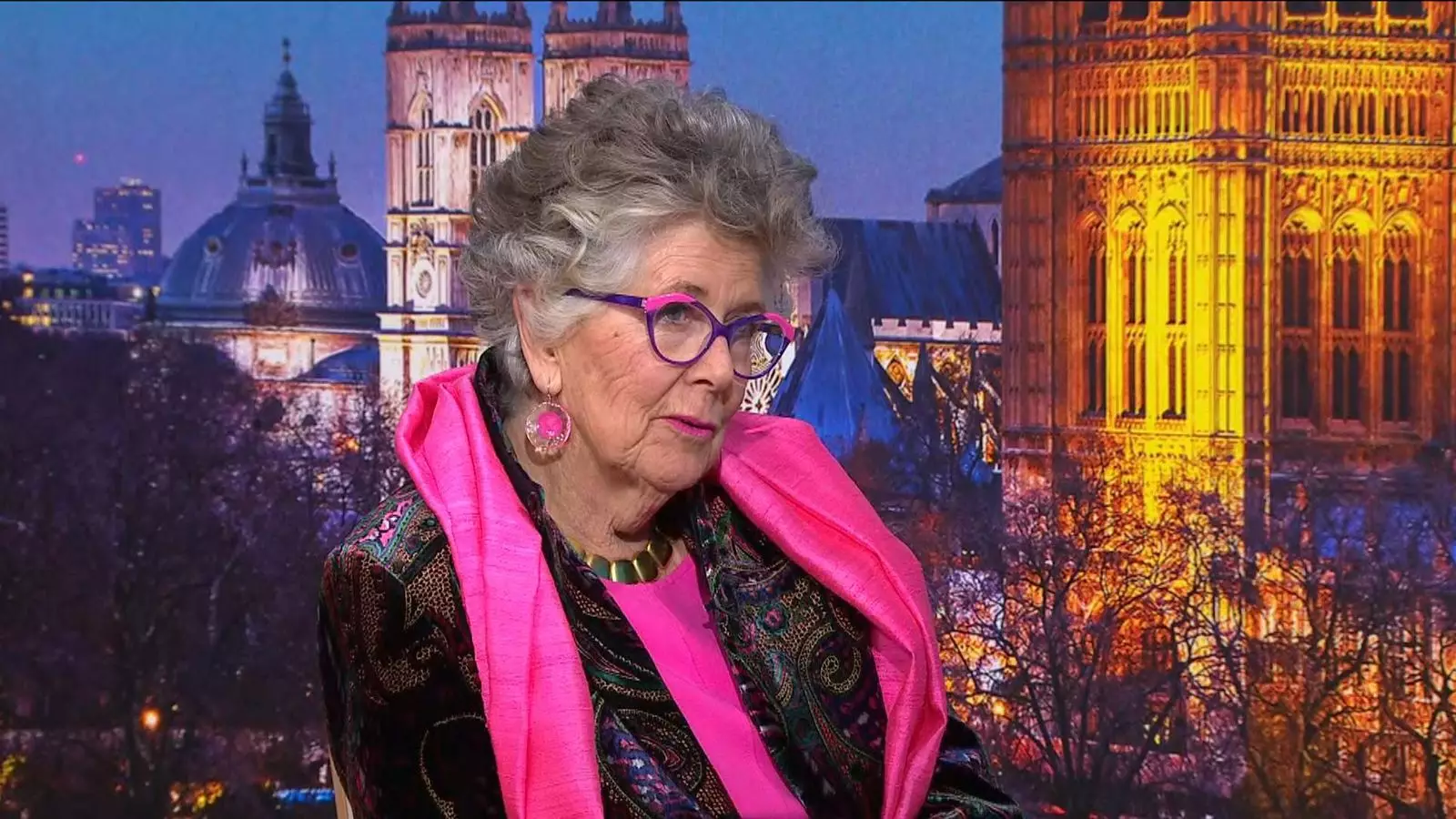Dame Prue Leith, a prominent figure in British media and culinary arts, has become a powerful voice in the ongoing debate surrounding assisted dying. Drawing from indelible personal experiences, she has shared her advocacy for legislative changes that would allow terminally ill patients a dignified choice at the end of their lives. Currently, the Terminally Ill Adults (End of Life) Bill awaits a parliamentary vote, which would make it legal for medically assisted deaths, offering a glimmer of hope amid an often painful and protracted end-of-life experience for many.
The circumstances that propelled Dame Prue into this public discourse are deeply personal. The death of her brother, David, to bone cancer exposed her to the harrowing realities of terminal illness. She recalled witnessing him in excruciating pain, voicing agony as he endured futile medical interventions like morphine that only offered temporary relief. This emotional burden has profoundly influenced her perspective on assisted dying, making her an advocate for change in current legislation, which she deems ineffective in safeguarding the dignity of patients experiencing such distressing circumstances.
This familial catastrophe not only shaped Dame Prue’s views but also introduced tension in her relationship with her son, Danny Kruger, who serves as the shadow work and pensions minister. His opposition to the proposed bill, grounded in a belief that adequate palliative care would eliminate the need for assisted dying, stands in stark contrast to his mother’s perspective. This conflict illustrates the intricacies often involved in discussions of ethical medical practices, revealing that personal experiences can lead to diverging paths in understanding shared familial tragedies.
Despite these ideological discrepancies, Dame Prue maintains a sense of respect and affection in their exchanges. Their dialogue, while potentially contentious, emanates from a place of mutual love and concern—elements that underpin many family discussions that touch upon deeply personal issues like life and death. Notably, she affirms that they generally avoid extended debates on the topic, thereby reinforcing the idea that activism can exist with familial harmony, despite differing viewpoints.
Among the pressing issues at hand is the urgency for parliamentary action. With MPs scheduled to vote on this crucial bill soon, Dame Prue has implored them to consider the stories of those like her brother. She asserts that the current legal framework does not adequately attend to the suffering experienced by patients in their final hours. In highlighting the painful reality that terminally ill patients face, particularly under the constraints of existing laws, she urges lawmakers to confront the moral responsibility they hold in crafting legislation that reflects compassion and human dignity.
The proposed legislation does not merely introduce a new right; it aims to provide a structured and safeguarded process for eligible patients. Proponents, such as Labour MP Kim Leadbeater, emphasize that the proposed safeguards ensure a highly regulated system that prioritizes patient autonomy while minimizing risks of misuse. However, fears voiced by opponents about a ‘slippery slope’ towards potential abuse serve as an ongoing counter-narrative in the discourse.
This brewing controversy invites wider ethical questions around the concept of “life” versus “death” in a societal framework. It challenges fundamentally held beliefs that encourage the preservation of life at all costs, invoking broader discussions about the quality of life and humane treatment during critical times of suffering. It also presents a dichotomy between autonomy—allowing individuals the freedom to choose their endings—and the protective instincts of society regarding vulnerable populations.
The current debate extends beyond legislation; it reflects a broader cultural reckoning about how societies deal with mortality, suffering, and compassionate choice. As more voices like Dame Prue’s join the discourse, it becomes clear that the intersection of personal experience and legislative action is vital in forming a nuanced understanding of such a sensitive topic.
As the impending vote looms, the cries for compassion and dignity resonate louder than the fear of what could ensue. The outcome of this legislation could, indeed, reshape not just laws but the very fabric of how we understand and approach assisted dying in society, ensuring that the last chapter of life can be penned with an inscription of dignity and choice rather than mere endurance.

